QuestionI have had Lizzy for about 6 months now. She has always been very healthy and ate every other day like clockwork. The past couple weeks, however, she has not been eating at all. She did shed last week and ate the skin from her shed as she is supposed to but she will not touch crickets at all. I tried giving her some romaine lettuce in her food dish and she won't touch that either. She has always refused mealworms. I took her to the vet last week because she had a white spot on her nose (which turned out to be some skin that did not shed and she also had a sore on the edge of her mouth due to rubbing on the side of the humid hide to try to get the skin off. The vet gave me an ointment to put on the sore and now it is all healed up and suggested I change her cage from all bark to 1/2 coarse sand and 1/2 dirt that is about 4 inches deep. he told me to do that because they sometimes like to burrow. I keep the tank around 85 during the day and 75 at night. I have an undertank heater on the sand side with 2 hides (1 on each side) and a humid hide. She NEVER leaves the humid hide anymore!! Is there any reason for that? She has only pooped twice in the last 2 weeks because she is not eating and her poop is normal. I just need to get her to eat!! Any suggestions would be greatly appreciated. I really don't want to stress her out anymore by making another vet trip.
AnswerWell, since she has a record with the vet, it shouldn't be necessary to take her back in right away--but you SHOULD take a fresh (not dried out) fecal sample in to the vet to have him test her for parasites. Parasites are a very common cause of loss of appetite, and they can be carried by feeder insects occasionally, so a yearly test is a good idea.
Keep an eye on her tail weight--if her tail is staying nice and fat, she has good reserves--if it begins to thin, it may become necessary to give her nutritional support (such as tube-feeding, which the vet must do).
What is the humidity in the cage? Is it correct for a fat-tail gecko? Check it with a humidity gauge--it's always best not to guess. Low humidity does more than cause bad sheds--it also causes chronic dehydration, which can stress all of the animal's bodily systems. Drinking water isn't enough for species with higher humidity requirements--they will dehydrate if kept too dry.
While it's true they may like to burrow, make sure the substrate is moist enough--it should be kept damp enough to raise the humidity (but never be wet--excessive water can lead to infections and mold growth). Change it often, whenever it gets soiled. Check the temperature on the surface of the substrate over the heat pad, using a thermometer with a remote probe. (cheap indoor/outdoor thermometers with remote probes can be bought at Wal-Mart). The temperature in that area should be 90F. Any cooler, and the gecko will not be able to bask properly to digest its food. The air temperature in the cage should be 80F during the day. The drop in temperature at night is fine.
I would not have recommended changing the substrate for an animal that has gone off its food suddenly after eating well. Big changes only stress out reptiles further. However, bark is a risky substrate--any small pieces could be swallowed, and cause an intestinal blockage.
Remember that 'anorexia' in reptiles is a symptom, not a disease. Something is causing her to lose her appetite. You need to find what it is, and correct it, to get her to eat again. The most common causes of loss of appetite are internal parasites, infections, or stress. Stress can be caused by changes in environment, excessive handling, or inappropriate environment (wrong temperatures, humidity, hides, etc).
It is also possible that the temperatures on the cage floor have been too cool, and that, along with the lack of humidity, has caused her to believe it's time to brumate or aestivate. (Fat-tail geckos have huge tails to last them through periods of chilly or dry weather). If that is the case, make sure your light cycle is 12 hours on, 12 off, and the correcting of the temperatures and humidity will probably get her to snap out of it within a couple weeks. Only consider this as a possibility if you don't see a great reduction in her tail weight--if her tail thins quickly, that's a sign she is ill, not just brumating.

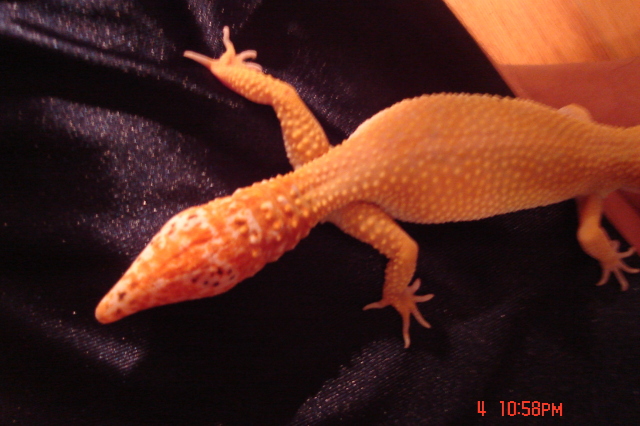 dystocia or not
Questiontail
QUESTION: Hi Diane. How are you tod
dystocia or not
Questiontail
QUESTION: Hi Diane. How are you tod
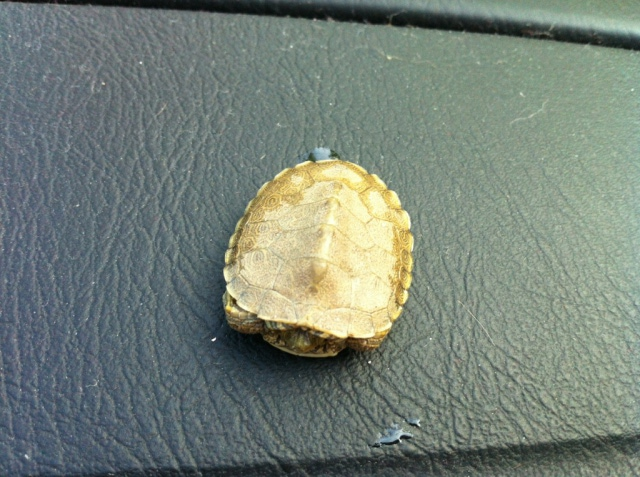 What kind of turtle is this?
Question
george george
i found him at a be
What kind of turtle is this?
Question
george george
i found him at a be
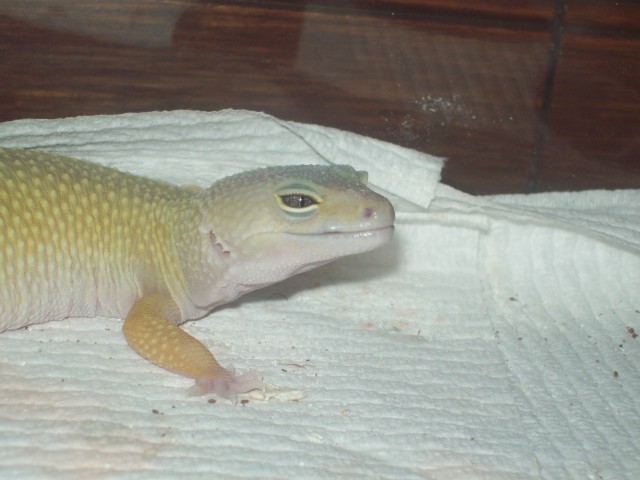 Whats wrong with me Gecko, not eating, lump?!?! HELP!
QuestionQUESTION: Okay, So I think my leopard gecko may
Whats wrong with me Gecko, not eating, lump?!?! HELP!
QuestionQUESTION: Okay, So I think my leopard gecko may
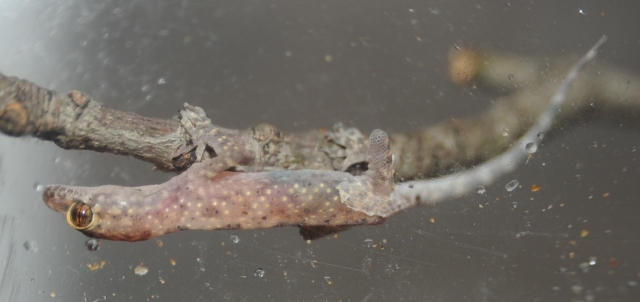 Anole or Gecko ID (found in car after trip to AZ/TX
Question
Hitchhiker named JR
Hi Bryan,
About a month
Anole or Gecko ID (found in car after trip to AZ/TX
Question
Hitchhiker named JR
Hi Bryan,
About a month
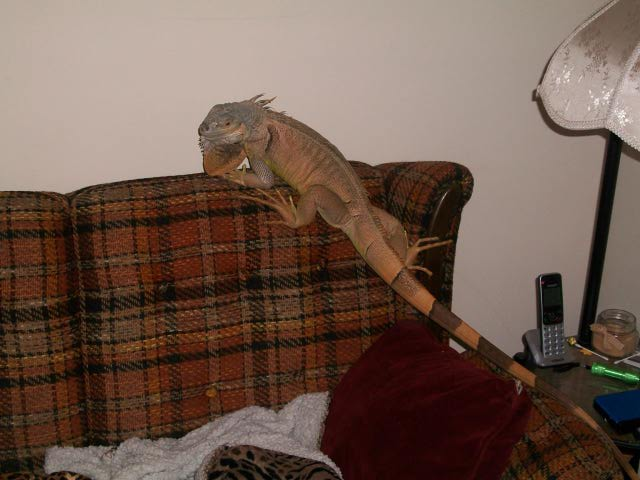 Green Iguana
QuestionJade
Jade
QUESTION: hello i Bough
Green Iguana
QuestionJade
Jade
QUESTION: hello i Bough